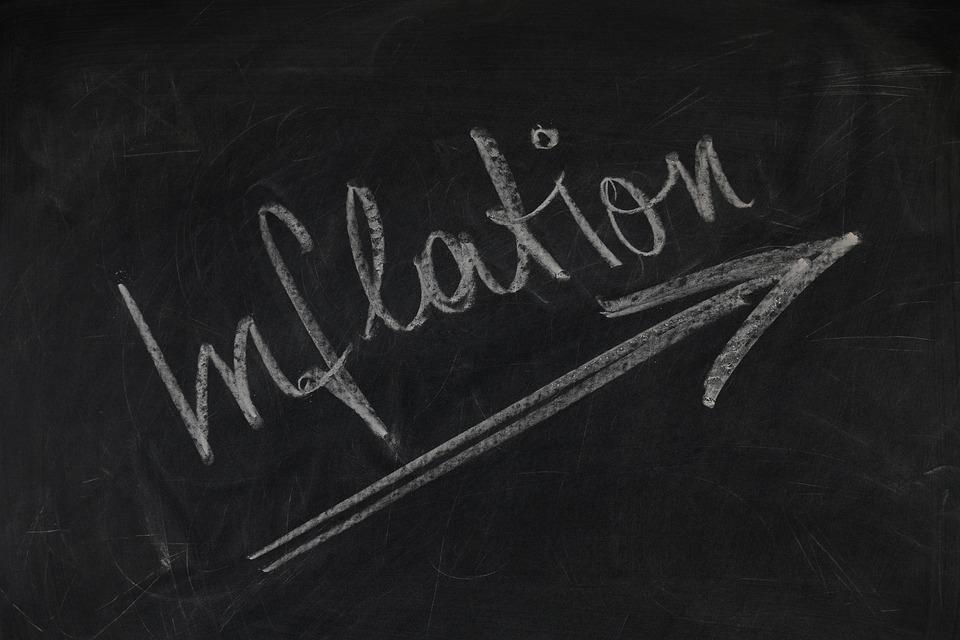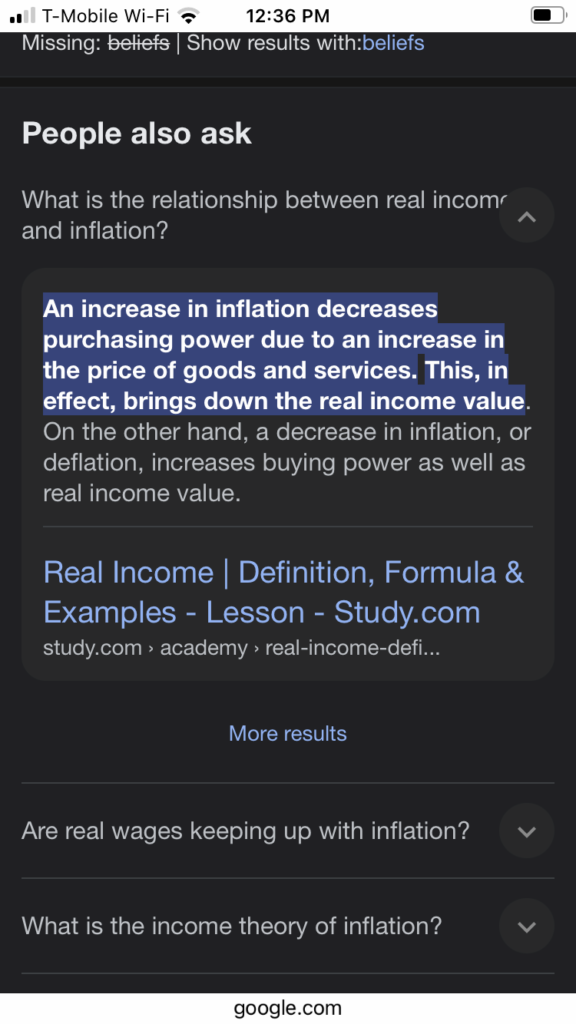Perceived Inflation And The Perceived Effect Of Inflation

I have my usual thoughts about inflation. People confuse levels and changes. I think this is a fundamental cognitive illusion. I think perceived inflation and the perceived effect of inflation on real incomes are based on an impressive pair of errors.
1) people estimate inflation from the price level comparing current prices to prices they remember and consider reasonable. As noted by Krugman and Nate Silver, this is not necessarily an error. It might be that they think of inflation over 24 of 36 months. The choice of 12 months is arbitrary. But it means perceived inflation is very persistent (in your Substack you just argued for monthly and consider the noise by thinking not moving averaging).
2) people think inflation causes lower real incomes because the look at the acceleration of inflation. It is normal automatic and irreparable to assess the difference between 2 states by looking at what happens when one shifts from one to the other. This works if there is no dynamics — if lagged variables have zero effect.
Acceleration of inflation causes lower incomes as wages catch up with a lag. Similarly, people believe in sleeping pills. Studies show insomnia with and without is not statistically significantly different but when one starts taking them one sleeps more and when one stops one sleeps less. The very different effect of changes and levels is due to habituation (the polite word for addiction). See also recreational drugs.
I decided to Google and Google’s artificial intelligence pulled up a perfect example.

A semantic quibble – the Google chosen instructors wrote “deflation” when the correct term is disinflation. The distinction is hugely important but not obvious to someone who conflates a decrease with a negative level.But the point is they explicitly answer the question about the effect of inflation by discussing I decided to Google and Google’s artificial intelligence pulled up a perfect example (attached). A semantic quibble – the Google chosen instructors wrote “deflation” when the correct term is disinflation.But the point is they explicitly answer the question about the effect of inflation by discussing equating I decided to Google and Google’s artificial intelligence pulled up a perfect example (attached). A semantic quibble – the Google chosen instructors wrote “deflation” when the correct term is disinflation.But the point is they explicitly answer the question about the effect of inflation by discussing “an increse in inflation” when they are trying to evaluate the effects of a higher level of inflation. The use of correlates of acceleration of inflation to evaluate the effect of higher inflation is explicit. The authors give no hint of understanding that the two concepts are different and that they are assuming no effect of lagged inflation on nominal income.
This is before the first hit (as Google has become irritating as the phrase “artificial intelligence” must appear somewhere and Google neglected the possibility of calling Google rank artificial intelligence)
More By This Author:
FDIC: Number Of Problem Banks Increased In Q1 2024
Hype, Or The Future Of Hybrids?
Crocodile Tears



